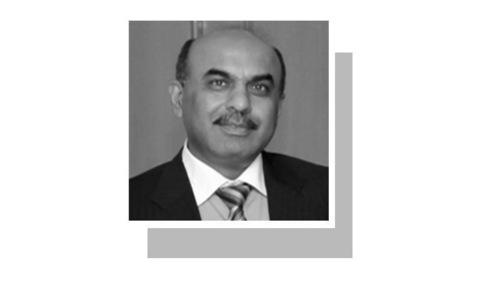ISLAMABAD: As the PML-N-led coalition is deliberating upon filing of a high treason case against the Pakistan Tehreek-i-Insaf (PTI) leaders, experts who had pleaded the only case registered under Article 6 against an ex-military ruler explain legal challenges for making a treason case against politicians over alleged violation of the Constitution.
Amid the ongoing constitutional crisis since Imran Khan’s ouster from PM office through a no-trust vote, the controversial ruling of National Assembly Deputy Speaker Qasim Suri initially sparked the debate of invoking Article 6 against him and later Punjab Governor Omer Sarfraz Cheema’s refusal to administer oath to then CM-elect Hamza Shehbaz despite the court order also revived the legal discussion on the matter.
Interestingly, the LHC observation in the verdict on the oath issue that President Dr Arif Alvi and Governor Cheema had violated Article 5 by not complying with the court directions of fulfilling their constitutional duty of administering oath to the CM was expunged from the order a day later by a division bench.
Many lawyers are of the opinion that violation of Article 5, which requires loyalty to the state, Constitution and law, can consequently be dealt under Article 6 for high treason. However, some legal hawks think otherwise. They say high treason is what that is clearly defined in the Constitution vis-a-vis abrogation, suspension, subversion or holding it in abeyance.
Acts by Punjab governor, NA deputy speaker stir Article 6 debate amid constitutional crisis
Article 6 states: “Any person who abrogates or subverts or suspends or holds in abeyance, or attempts or conspires to abrogate or subvert or suspend or hold in abeyance, the Constitution by use of force or show of force or by any other unconstitutional means shall be guilty of high treason.”
The clause 2 says: “Any person aiding, abetting or collaborating in the acts will also be considered guilty of high treason.” Sub-clause A of the clause 2 says an act of high treason cannot be validated by any court, including the Supreme Court and a high court. The last clause directs parliament to provide “for the punishment of persons found guilty of high treason”.
Mohammad Akram Sheikh, who was the chief prosecutor of the high treason case against former military ruler retired General Pervez Musharraf, has reasons to believe that someone who violates Article 5 can be tried for high treason.
He said the criteria for filing a complaint under Article 6 had explicitly been defined in the Rules of Business 1973, High Treason (Punishment) Act, 1973 and the Criminal Law Amendment (Special Court) Act 1976. Also, the high treason was a schedule offence in the Federal Investigation Agency Act (FIA), 1974, he added.
Without commenting on the current constitutional crisis, Advocate Sheikh said violation of Article 5 meant that the person was not loyal to the state and disobeyed the Constitution, hence, he could be tried for high treason.
The treason complaint against accused person can be lodged after proper inquiry and investigation and if the competent authority believes the case was open and shut, it can order for investigation instead of holding the inquiry first.
However, constitutional expert former justice Syed Shabbar Raza Rizvi is of the opinion that violation of Article 5 is not high treason.
Article 5 is a ‘declaratory provision’ of Constitution, as it defines citizen’s obligations, which are loyalty to the state and obedience to the Constitution and law, according to him.
Unlike Article 6, Article 5 does not have any penal consequences.
According to Mr Rizvi, the deputy speaker’s ruling and the issue of not administering oath to Mr Hamza may not be the violation of Article 5 when these matters are pending before the constitutional courts. In case of non-implementation of superior courts order, they might be tried for contempt of court under Article 204 of the Constitution, but such disobedience cannot be termed high treason.
High treason versus sedition
The high treason case against former military ruler Musharraf was investigated by an FIA’s Joint Investigation Team (JIT) headed by the then additional director general, Khalid Qureshi.
Talking to Dawn, an official of the JIT requesting anonymity said some legal experts were mixing up high treason with sedition.
Unlike high treason, the scope of sedition was comparatively vast, the official said.
According to him, the government authorises the interior secretary to file a complaint before a special court seized with high treason trial only after an investigation team, constituted by the FIA on prime minister’s order, concludes that the case falls within the ambit of Article 6.
Previously, the provincial home secretaries had the power to file the high treason complaint, but the law was amended in 1994 notifying the federal interior secretary as complainant in a high treason matter.
Special court, penalty
The official explained that the government with the consultation of the Chief Justice of Pakistan establishes the special court for high treason trial and appoints at least three judges from provincial high courts.
The High Treason (Punishment) Act, 1973 provides for the punishment of persons found guilty of acts of abrogation or subversion of a Constitution or of high treason. And a person found guilty of high treason might be punished “with death or imprisonment for life”.
Published in Dawn, May 2nd, 2022












































